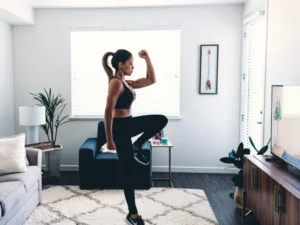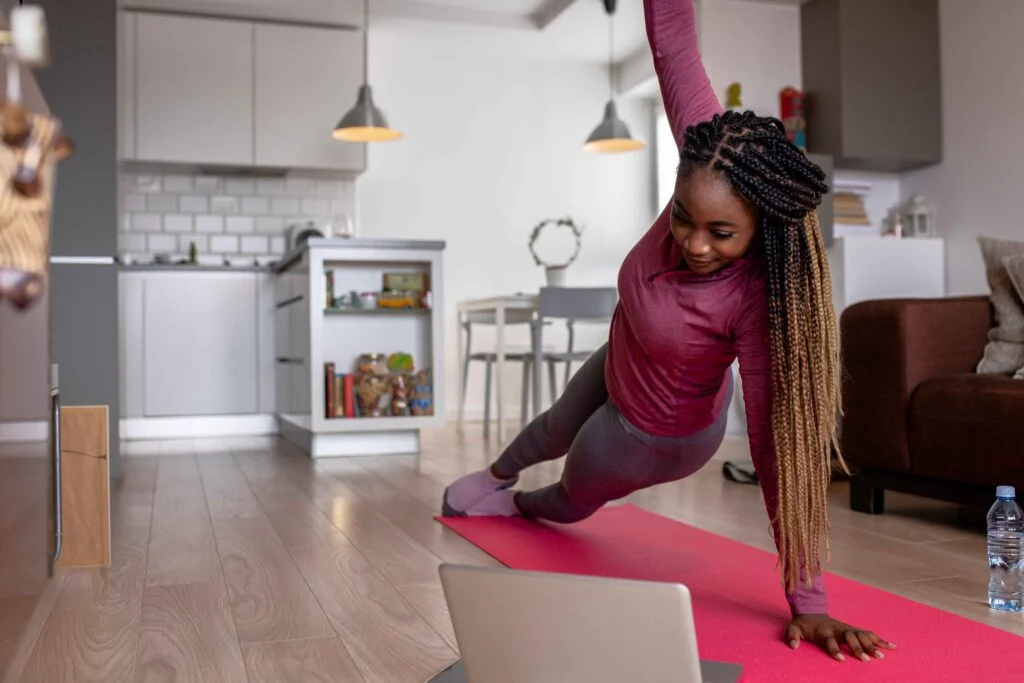In 2022, a global survey conducted by the American College of Sports Medicine (ACSM) revealed a major shift in how people around the world choose to stay fit. According to the findings, home-based exercise gyms secured the second spot on the global list of fitness trends, a remarkable jump as the trend had never appeared so prominently in previous years.
While wearable fitness technology held the number one position, home gyms quickly became a preferred method for maintaining health and wellness. This upward trend emerged as a lasting effect of the COVID-19 pandemic, which pushed many fitness enthusiasts away from public gyms and toward private home setups.
Why Home Fitness Took Center Stage
The rapid growth in popularity of home exercise setups in 2022 can be attributed to several key factors:
-
Health and safety concerns: With public health risks still fresh in people’s minds, many avoided gyms and instead created personal spaces at home for working out.
-
Convenience: Home workouts removed the need to travel, allowing people to train at their own pace and on their own schedule.
-
Affordability: As monthly gym fees became unnecessary, people shifted to buying simple equipment like resistance bands, dumbbells, yoga mats, or indoor bikes.
-
Digital access: The rise of fitness apps, video tutorials, and virtual coaching sessions made structured home workouts easier than ever before.
These elements combined to transform how people engaged with fitness, giving rise to a more independent and flexible approach to staying active.

Nigerians Follow the Global Trend of At‑Home Fitness
Though the ACSM survey focused on global responses, including North America, Europe, and Asia, its influence was clearly felt in Nigeria. As the trend grew internationally, Nigerians also began turning to home-based workouts. The country’s urban population, which often battles long commutes and traffic congestion, found home fitness particularly appealing.
In cities like Lagos and Abuja, social media platforms such as Instagram, YouTube, and TikTok became primary sources for Nigerian fitness enthusiasts to follow local and international trainers. Dance-based routines featuring Afrobeat music and culturally relevant workouts started trending, blending entertainment with exercise.
The Digital Fitness Revolution in Nigeria
Home workouts in Nigeria did not just involve using dumbbells or jumping jacks. Instead, a digital transformation has made fitness more accessible than ever before. Several new trends emerged:
-
Online personal training: Certified coaches now offer live or pre-recorded workout sessions through video calls or app platforms, often charging a fraction of in-person session rates.
-
Mobile fitness apps: Nigerians increasingly downloaded apps that provide guided routines, nutrition advice, and progress tracking.
-
Fitness influencers: Nigerian content creators, especially women, began leading the charge in promoting home workouts, using local language and music to connect with followers.
-
Wearable tech: Smartwatches and fitness bands became more affordable and widely used among urban professionals looking to monitor their daily activity and set fitness goals.
How Home Workouts Changed Habits
What started as a temporary solution during the pandemic evolved into a sustainable lifestyle change. For many Nigerians, exercising at home became more than a convenience—it became a preferred choice. Even with the reopening of gyms, several people continued to maintain their home routines, occasionally mixing them with gym visits when needed.
This hybrid approach allowed individuals to benefit from the community aspect of gym workouts and the flexibility of home training. Nigerian families also became more fitness-conscious, with parents involving children in daily routines, promoting wellness across generations.
Key Fitness Patterns Observed in Nigeria by 2025
By 2025, the home workout trend had firmly taken root in Nigeria, with the following developments becoming increasingly visible:
-
Popularity of dance workouts: High-energy Afrobeat dance routines became a national hit, combining cardio exercise with cultural celebration.
-
Increased use of fitness technology: Devices such as Fitbits and Apple Watches are now widely used to track steps, heart rate, and calories burned.
-
Rising demand for online trainers: Many Nigerians now prefer remote fitness guidance due to its affordability and accessibility.
-
Functional training and HIIT routines: Short, intense workouts that require little to no equipment gained a loyal following among busy professionals.
-
Fitness and wellness communities: Online forums and support groups now help users stay motivated, share progress, and connect with others on similar journeys.
What’s Next for Home Fitness in Nigeria?
While global rankings show that the popularity of home exercise gyms slightly declined by 2023, falling out of the top 20, the habits built in 2022 are expected to have long-term effects—especially in developing nations like Nigeria. Fitness experts believe that a hybrid model combining home routines with occasional outdoor runs or gym visits will remain the norm.
As more Nigerians seek affordable and consistent ways to stay fit, the demand for virtual coaching, smart fitness gear, and home workout content will likely continue to grow. Local tech entrepreneurs and wellness startups may find exciting opportunities in this space—especially by creating content that aligns with Nigerian lifestyles, languages, and music preferences.
Conclusion
The inclusion of home gyms as the second most popular global fitness trend in 2022 marked a pivotal moment in the way people approach exercise—and Nigeria was no exception. The country witnessed a digital fitness revolution, as individuals ditched traditional gym routines for more flexible, accessible, and personalized home workouts.
Now, home fitness has become a permanent fixture in Nigerian households. With innovation, cultural expression, and convenience driving this trend, it’s clear that the future of fitness in Nigeria—and beyond—rests on a foundation built within the four walls of our homes.







